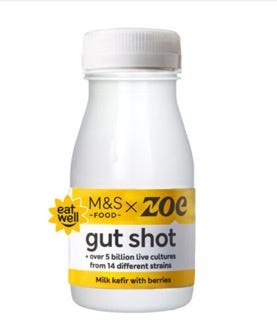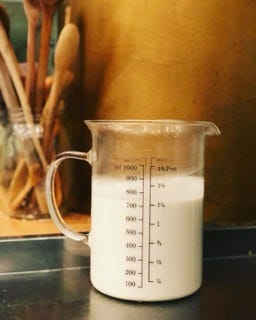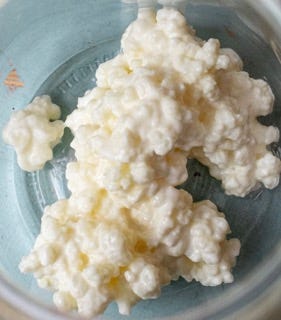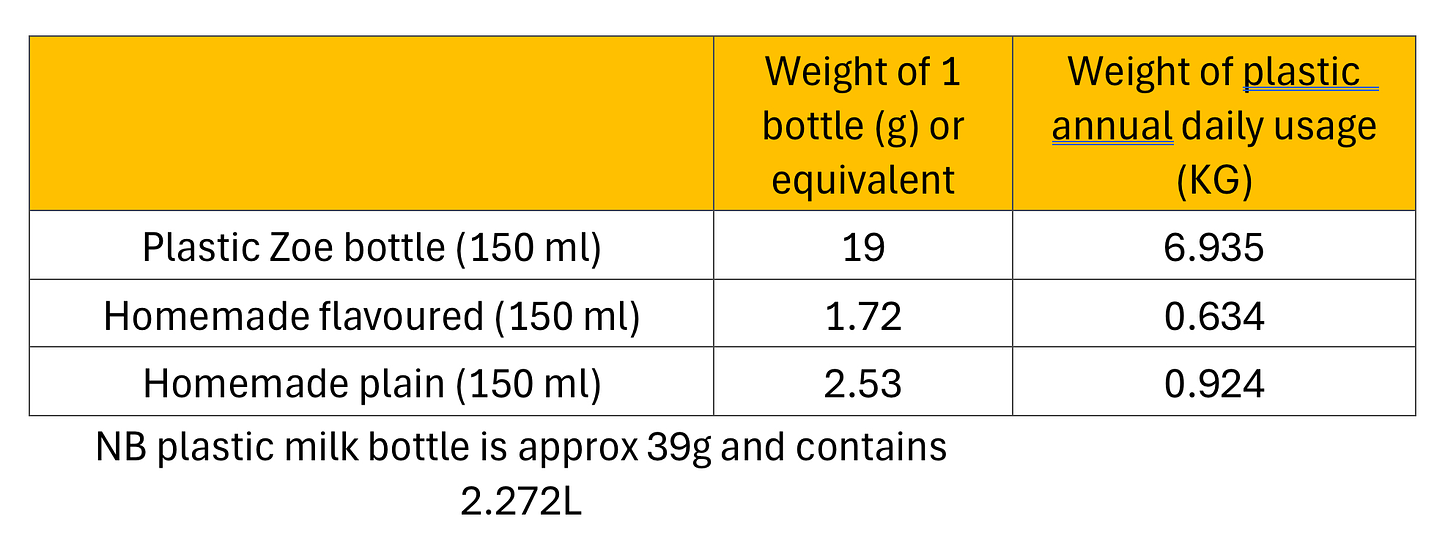Zoe. A name that hasn’t been particularly popular since the 70’s is currently on the tip of everyone’s tongue. If you have been trekking through the Mongolian-Manchurian steppe and haven’t heard of it in any other context, let me enlighten you…
Zoe (named after the Greek word for “life”), is a personalised nutrition programme developed by Professor Tim Spector of King’s College London, which aims to give its customers unique insights into the state of their metabolic health: the composition of their gut microbiota and their response to glucose, fats, and gut transit time. Information from customer questionnaires and the results of stool sample microbiota tests, blood glucose monitoring, blue muffins for gut transit and blood triglyceride tests populates a huge database from which they draw conclusions about various nutritional conundrums, and on the basis of your personal results, recommendations are made for you on which foods you should eat, and which you should avoid for optimal metabolic health. Monthly subscription to a plan is optional. At time of writing, the costs are **** £299 for the basic tests, then an ongoing £25 pcm.
The reason for the recent furore is that Zoe have expanded their repertoire to include the Gut Shot - described as milk kefir with berries - in conjunction with M&S Food.
The blurb says “This is not just any gut shot this is an M&S and Zoe gut shot”. Which amused me I have to say. “Zoe brought world-leading gut health expertise, we brought the quality and taste you’d expect from M&S to create our ultimate daily shot. It’s packed with fibre, colourful fruits, billions of live bacteria and a source of calcium to help support your gut health. Enjoy!”, it continues.
Fermented Foods are included in almost every guru’s list of things to eat to improve your health and wellbeing; with over 750 scientific publications listed on the PubMed database, research into kefir has burgeoned recently; at a later date I’ll examine the evidence, but for now, lets just assume that the health benefits of kefir are firmly established (Rosa et al 2017).
So what’s the big deal?
The addition of this product to the crowded ready-made-kefir space (supermarket own varieties, The Collective, Yeo Valley, Biotiful, Nourish), seems to have upset people left right and centre. Major objections include: surpise that Tim Spector would engage in such an obviously commercial venture: horror that this product comes in disposable plastic bottles: bemusement that someone who seems to uphold a diet containing minimally processed foods made from scratch( and in fact makes his own kefir every day), is now producing something that seems to be the opposite: and the price. ( for more background on Prof Tim see the end).
Let’s look at the product (awful photo - had to get it from the video).
Ingredients:
Kefir (Milk) · Mixed Fruit Purée (21%) (Apple · Strawberry · Banana · Blackcurrant · Blueberry) · Baobab Fruit Pulp · Chicory Fibre · Fruit and Vegetable Extracts (Ginger, Blackcurrant, Pomegranate) · Lemon Juice · Cultures including: Bifidobacterium, Lactobacillus acidophilus, Lactobacillus bulgaricus, Lactobacillus paracasei, Lactobacillus rhamnosus.
So here we have it - 150 ml of pinky-purple kefir mixed with 10 different types of fruit (including extracts) and cultures. It doesn’t taste sweet, there’s a definite sharpness to it, and a fruitiness, though it’s hard to pick out any particular flavour. It tastes yoghurty, but with a sourer edge than most other commercially available kefirs. Is it nice? Not particularly to me - I prefer my own.
It ticks several nutritional boxes: 3.3g fibre ( more than 10% of the daily recommended 30g), 3.3g protein, 14 different strains of probiotic bacteria - the usual suspects, an unspecified amount of polyphenol derived from the berries etc… and in terms of diet diversity, an unspecified amount of 10 of the 30-a-week fruits and vegetables suggested by Zoe. Roughly 10% of calcium rda is provided by the milk.
Is it ultra-processed? I wouldn’t say so - processed, yes, ultra no. There are no additives or preservatives ( though I suspect some “help” with the texture see below), and no chemicals or artificial flavours, thus upholding Zoe’s principles about UPFs. There is no information about the origin of any of the ingredients. I discover from reading the comments under the Zoe Instagram post that Organic Yeo Valley milk is used as the base, which I like. This is not mentioned on the packaging (trading standards rules might prevent this). However, I find myself discontented.
Is this kefir?
Not on my watch (though there’s no trading standards rules about this)! It’s a probiotic drink. Adding separate cultures to a milk base that is likely to have been “enhanced” (additional milk proteins to improve texture do not have to be mentioned on ingredient lists) isn’t really the same thing. The joy of kefir grains is that they are ancient cultures that live together and work together, changing slightly according to their environment, but almost always containing Lactobacillus kefiri and Lactobacillus kefiranofaciens, acetic acid bacteria and yeasts in happy harmony. Using grains creates kefir full of end products of their symbiotic metabolism, and a variety of microbes that can influence the gut (Walsh et al 2023 ). This natural development cannot be replicated by adding individual microbes to the mix that don’t necessarily “talk” to each other, so you end up with something implying that it’s kefir, but actually, isn’t. In addition, strains will be selected that grow well in commercial culture, so others, like the kefiran polysaccharide producing strains are absent.
If you make your own , however, you’ll know that even small batches can be unpredictable in terms of both taste and texture - you can see why they do it.
Cost Analysis
Each bottle of Zoe Gut Shot costs £2, so if having every day, that’s £730 per year.
I couldn’t resist comparing the cost of this and home-made kefir. Daft on one level - I mean who compares the cost of a home or away sandwich, or cuppa with a daily takeaway coffee but bear with me; a recent study has shown that over the short term, kefir can cause positive changes to the gut microbiota; but changes in metabolic markers take longer to appear (Walsh et al., 2023); to reap the benefits this is a long term thing, so needs to become a daily habit for the whole family (
My analysis isn’t completely accurate:
I don’t know the weighting of the fruit in the 20% purée; some are cheaper than others. I cannot tell the quantities of the other ingredients, only that they are less than that. (In fact I don’t really think it matters - eat the rainbow and some lentils in your daily life and you’ll more than cover the add-ins).
People making food in factories can get ingredients much more cheaply than we can due to economies of scale.
I’ve allowed 25p per homemade-bottle-equivalent for ingredients other than milk ( based on simple calcs - 30g mixed fruit purée etc, chickory powder etc...), have assumed that the Zoe Shot is 100 ml milk and 50 ml other ingredients. I am basing comparisons with home made kefir on standard supermarket organic milk (2.272 litres of organic British whole milk is about £2).
Well I know which I’m choosing. It is surely very expensive to buy. It is not, however, more expensive than River Cottage’s organic kefir which is £4.25 for 250 ml, that’s in another league! I suspect the glass bottle has something to do with it.
The plastic bottle issue.
Why plastic? With 38,000,000 (38 million) plastic bottles used every day in the UK (government 2017 data), do we really need any more?
Given Tim Spector and Zoe’s purported interest in eating for both health and planet, and recent findings that micro/nanoplastics are present in the blood of over 3/4 of a random sample of people (consequences as yet unknown) would it not be better to have opted for glass? If Biona organic kefir can come in glass jars, surely a Zoe gut shot can too? Or maybe they thought there are already 38 million bottles produced every day, what’s a few more?
Unfortunately though, in environmental and cost analyses for food production, glass doesn’t always come out on top; It’s energetically expensive to make and recycle, costly, breaks easily, and extra weight leads to additional refrigerated transport costs and emissions. Zoe may have carried out such an analysisn to inform their decision. But there are other hidden energy costs in addition to bottles; commercial kefir production is highly mechanised, requiring temperature control and lots of machinery, all of which uses a lot more energy than a jar and a sieve, and is another entire stage of processing of the pasteurised milk you’d use to make your own.
Scaling up and selling the Gut Shot in larger bottles would reduce the plastic footprint, but I suspect this is also to do with longevity of the product. Homemade kefir can last a few days in the fridge before the flavour sours unpleasantly. With the extra fruit component in the Zoe shot, after a few days I imagine there will be some pretty odd flavours knocking around as polyphenols and sugars are metabolised. Larger bottles equates to much opening and closing of bottles and leaving on the side, thus potentially more issues with it going “off”.
Whatever the reasons, using less plastic surely is a goal for us all. Making your own kefir has an enormous impact on reducing the amount you’ll use in your quest for better gut health. If you are lucky enough to have a magic cow (i.e a milk station - why aren’t these everywhere???) nearby, or a milkman, your daily kefir will produce zero plastic waste. If you use supermarket milk, you’ll still contribute significantly less plastic than if you had a daily Zoe kefir shot - sums below.
The amount of the plastic you would be contributing as a regular Zoe gut shot consumer is just under 7 kg per person per annum.
How can Tim Spector / Zoe produce such a thing?
To some the monetisation of a mega-trend like gut health seems unsavoury. Perhaps because of Zoe’s generosity with access to the information they produce (their extensive catalogue of podcasts is widely and freely available), it’s easy to forget that this is a commercial company. They have investors to the tune of millions of pounds, but it’s early days and as yet they haven’t made a profit. They seem to be keen to drive a wider understanding of factors that can influence health in the population at large, but probably would be extremely happy for everyone to then sign up to their programme, for which you get the benefit of donating your data for their research purposes and continued profit!
It’s unprecedented that a non governmental agency could have such an enormous impact on the health-awareness of the nation - hitherto our “rules” have come via the department of health - and look at the mess that’s got us into - food pyramids and plates, low cholesterol don’t eat eggs, low salt, fizzy drinks are fine, trans-fats no problem. It’s almost impossible not to have an agenda - perhaps insisting that personalised medicine is the only way is Zoe’s.
It’s a pipe dream for most research scientists to be able to turn years of work into a commercially successful enterprise. Perhaps Zoe “jumping on a bandwagon”, with the Gut Shot, is ankin to any growing business using strategies to ensure their continued success, and appealing to their target market?
Zoe has been in the news lately for apparently causing the worried well to bother their GPs and other health advisors because they’re concerned about blood sugar peaks, which are a normal physiological phenomenon. Blood sugar peaks are not a problem if they go down again quickly - insulin is released that removes the glucose and normal levels are resumed (a massive peak and subsequent massive release of insulin can make you feel lethargic and strangely hungry again though). Over time, if you eat sweet and ultraprocessed foods with gay abandon, your insulin could stop working as effectively, then blood glucose levels remain high and pre-diabetes can set in. My view is that it’s better for people to seek advice as the “worried well” rather than the “metabolically unwell”, and that those appointments, whilst irritating to GPs, may well ensure that those patients don’t come back again.
My Own Verdict
Flavour 2.5/5, Nutritional composition 2.5/5, Price 1/5
Would I buy it? If I were on the motorway at an M&S services, in need of a kefir pick me up, and if there was no alternative, possibly. Would I buy it regularly? Not on your nelly.
Making your own kefir is much cheaper and much more sustainable. It is richer in microbial diversity and bioactive components. By trading traditions for short cuts we do our ancestors a great disservice.
If you really aren’t the sort of person who wants to make their own, why not consider subscribing to one of the smaller dairies who are using traditional methods? I’d recommend Ki Kefir. You can always supplement the tiny bit of fibre and the polyphenols with chia, flax, nuts and berries.
I am not yet sure of my opinion on Zoe. I worry that they seem to be cornering the market in health and dietary advice, and that Tim Spector’s “Diet Myths” are merely his own myths that he’s replacing existing myths with. On the other hand, for long healthy lives, we need to start making changes, and they have been pivotal in raising awareness of these facts. I haven’t done the Zoe programme and am not likely to - I am far too autonomous a soul for that, but it has hundreds of thousands of fans, happy to sing its praises.
The cost of the Zoe shot puts it clean out of reach of all but the most middle class of users. Even if prioritising gut health, a regular family would struggle to keep up with such a financial commitment. The choice of partnership with M&S tells me that this is both an “I saw you coming” for middle class fans of the Zoe programme, and also a well thought out strategy to raise awareness about both Zoe and the importance of gut health. Whatever your views on this little purple drink, is certainly has got us talking.
Thanks for reading - have you tried it? What’s your verdict?
References and Links
Microplastics found in human blood https://www.theguardian.com/environment/2022/mar/24/microplastics-found-in-human-blood-for-first-time
Rosa et al (2017) PMID: 28222814
Walsh et al 2023; PMID 37587110
Tim Spector and the Cult of Zoe
My Book. Fermented Foods a practical guide
Find me on instagram @every.good.thing
(Picture of bottles from Wikimedia commons).
Who is Tim Spector?
“Big Tim” as he’s affectionately known in our house, is one of the UK’s most high profile scientists. He originally came to the attention of the masses a few years ago, when his reasearch on twins revealed some interesting facts about the importance of the gut microbiota. Genetically identical twins were not always physiologically identical in adulthood - major differences in their gut microbiotas were found to exist, which could have arisen through life-style choices, or various illnesses contracted throughout life, etc….
After his own health took a turn for the worst, and applying everything he knew about the gut microbiota and nutrition to himself, he and some colleagues decided to take forward this idea of personalised medicine, applying for development funding.
But then COVID hit, and their efforts were diverted into setting up the COVID tracking app, whereupon the population were asked “how are you feeling today? ” and to log symptoms, thus giving valuable data about the spread and changing nature of the virus. 4 million people used the app, thus proving that it was possible to get a high level of public engagement to share data for the greater good.
Efforts then returned to concentrating on personalised health monitoring, largely in the UK where we seem to be loving it.
Tim has written a raft of books on how to live and eat.











Great post! Thank you. The whole point of Zoe is to personalise your diet. This gut shot is a generic drink for the masses without personalisation. It just doesn’t make sense. For example the amount of inulin in it for therapeutic effect eg for bone health is insufficient to make much difference. Hence you’re better off making your own gut shot and putting in quantities of specific prebiotics needed for your own goals. And as you say use a better kefir. Btw I have another Substack in the next couple of days coming on this. So much to say isn’t there! Thanks for sharing your thoughts. Jeannette
Fascinating insight, thank you. I think I'll stick to my own kefir!